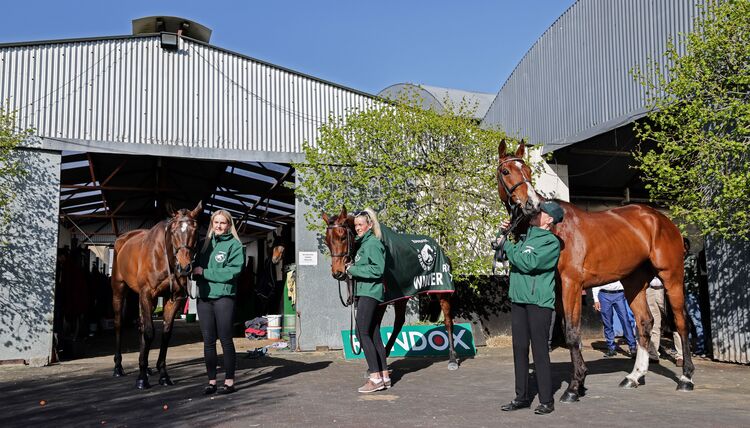William Joyce.
By Geoffrey Cobb
On the morning of Jan. 3, 1946, the governor of Wandsworth Prison came to condemned man William Joyce’s cell to inform him that his time had come. A few minutes later, the executioner pulled a lever, automatically opening the trap door beneath Joyce’s feet, ripping his spinal cord apart between the second and third vertebrae and killing him. One of the last two men to be hanged in Britain for treason, Joyce paid the ultimate price for the infamous pro-Nazi wartime broadcasts he made as “Lord Haw Haw.”
Joyce, though, was legally speaking not a traitor to Britain at all. He was an American national who technically owed no allegiance to Britain; but in the 1930s he applied for a passport, which proved to be a fatal mistake. By falsely claiming U.K citizenship, Joyce had unwittingly signed his own death warrant.
Joyce’s life story is one of the weirdest biographies ever of any Irish American. Born in 1906 on Herkimer Street in Brooklyn to Irish parents, Joyce’s mother did not like America so they returned to Ireland. They lived first in his Mayo, but in 1912 moved to Galway, where Joyce’s father, became the owner of a row of houses in Salthill and the manager of the Galway Bus Company. Joyce’s mother was a Protestant, who raised him in her faith and imbued him with a loyalty to Britain. He later said, “From my earliest days, I was taught to love England and her Empire. Patriotism was the highest virtue I knew.”
As Ireland moved towards more radical nationalism, the loyalist Joyce family became increasingly alienated from the local community, and they left for south London shortly after the end of hostilities in 1921. Although William was not yet 16, he had already left school and become involved with the Black and Tans in Galway, Later claiming that the IRA had tried to assassinate him. Joyce tried to join the British Army but he was discharged when his true age was discovered.

Joyce proved to be a failure in life and he blamed his many failures on Britain’s minorities. Joyce believed that in agreeing to grant Ireland independence in 1922, the British establishment had betrayed the United Kingdom and while still a teenager, he became one of the earliest recruits to Britain’s first fascist organization, the Mussolini-admiring British Fascisti. (However, it was while supporting a Conservative candidate in London in 1924 that he was slashed in the face by a knife-wielding communist, leaving him with a distinctive scar.)
Increasingly filled with hatred towards Catholics, Communists and Jews, Joyce saw fascism as the best way to destroy the nation’s enemies. He blamed his inability to complete his master’s degree on a Jewish tutor who supposedly had stolen his research. He also blamed Jews and other minorities for his rejection for posts in the civil service and Foreign Office. Joyce achieved little for a decade before joining Oswald Mosley’s British Union of Fascists, where he rose rapidly through the ranks, from an organizer in the home counties to director of propaganda, and, finally, Mosley’s deputy. The party’s electoral failure in 1937 led to a split between Joyce and Mosley. Sacked from his post, Joyce quit the party and founded the National Socialist League, where was he argued for an alliance with Hitler and war against the “twin Jewish manifestations” of Bolshevism and international finance. “If Germany needs help in hurling Orientals back to the Orient,” its manifesto proclaimed, “she is entitled to receive it from those who prefer white manhood and government to any other.”
Tipped off that he was going to be interred by the British government in 1939, Joyce escaped to Berlin, where he soon began to work for Josef Goebbels, joining the broadcasters on the Reichrundfunk’s English-language service. Affecting an upper -class British accent, Joyce’s broadcasts became an almost instant hit, attracting audiences of around 9 million Britons with his humor and his ridicule of British leaders. On his shows, Churchill became “the degenerate of Downing Street” and senior ministers such as Ernest Bevin “Mr. Bleeding Bevin” or “Hoary Ernie.”
His radio show, “Germany Calling, Germany Calling,” was a complete contrast to the highly deferential, heavily censored and staid programming offered by the BBC. Joyce, according to a BBC study, attracted at least some listening from two-thirds of the British public. Goebbels praised Joyce calling him, “the best runner I’ve got in my stable.”
Within three weeks of the outbreak of war, a Daily Express columnist christened the still unidentified broadcaster "Lord Haw Haw" because "he speaks English of the haw, haw, dammit-get-out-of-my-way, variety" and Joyce quickly embraced the name.
Joyce’s joyful recitation of Allied defeats, usually reported before the BBC had informed its listeners, provided the British listeners with information they feared was being withheld in the early months of the war. The BBC’s director-general warned in late 1939 that Joyce’s “ingenious” broadcasts were “a definite factor affecting public morale.”
In 1941, Joyce’s identity was revealed and his name became notorious around the world. While describing German civilians as innocent victims of Allied barbarity, he delighted in the bombing raids on his former country, stating, “Just retribution has befallen Britain.” That same retribution claimed his own father’s life in one raid.
He continued his broadcasts as the tide of war turned against Germany and often appeared on air drunk. He was captured by British soldiers who recognized his accent and put on trial for treason in London. Joyce had long harbored the false hope that, in becoming a naturalized German in 1940, he would escape charges of treason. It took a jury just 23 minutes to convict him. In 1976, his body was re-interred in a Protestant cemetery in Galway. Three-quarters of a century later after his execution, Joyce’s bizarre story continues to attract attention. He has been the subject of quite a few books and , Thomas Kilroy’s 1986 play about him, “Double Cross,” has been performed in Dublin and Belfast.









